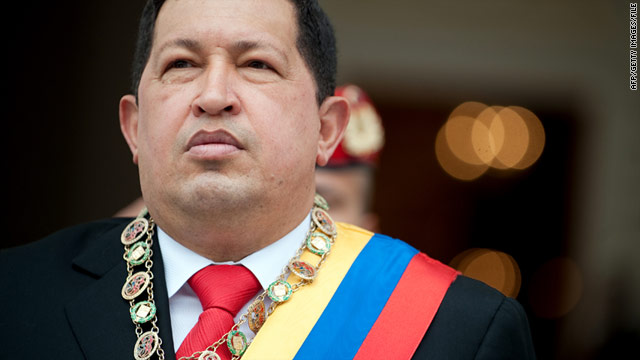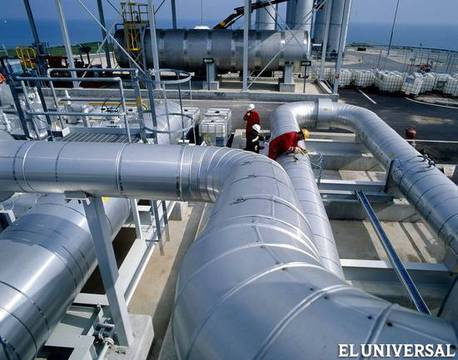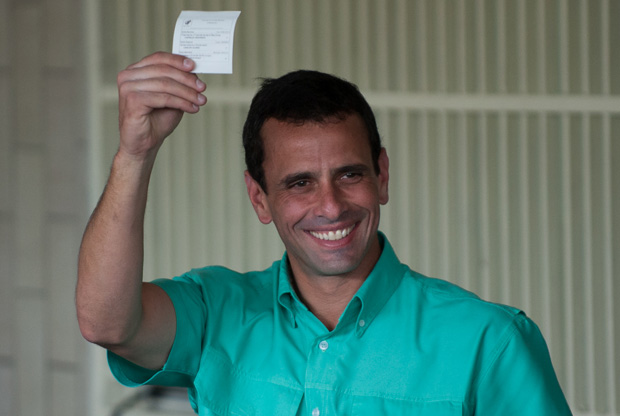October 7, 2012: What Will Be Hugo Chávez’s Fate?
On October 7, Venezuelans will head for the polls to determine if President Hugo Chávez’s self-revered “Bolivarian” revolution is to be granted a third consecutive six-year term in office. If the incumbent’s previous comments are to be believed, the race will be little more than a formality. In typical Chávez style, the outspoken Venezuelan leader has proclaimed that oppositional candidate Henrique Capriles Radonski will need a “stretcher” by the time the electoral results are all in [1]. Such rhetoric is par for the course for the president. Chávez’s affinity for hyperbole famously has cemented him as a notorious figure for conservatives around the world after the Venezuelan leader called the then-President George W. Bush “the devil” in front of the United Nations General Assembly in New York City. This does not include the many other instances of his outspoken self indulgence with disseminating homage or derision amongst his various friends and foes.

The misiones and Chávez’s persona
Still, for all of Chávez’s exuberant confidence (or rudeness, depending on the interpretation), currently the president appears to be polling either slightly ahead or evenly with Capriles. Alternately, in several recent national polls, Chávez has been depicted as trailing him, as was the case in last week’s report from the respected polling institution Consultores 21, whose results in fact placed Capriles ahead of his rival—one of the first times that the South American comandante has not led all of his opponents [2].
Beyond his worldwide recognizable name, Chávez carries with him many negatives, although his efforts to increase State spending on the country’s impoverished sectors are either cause for veneration or his defining legacy, since this is largely how he has been able to repeatedly snatch victory out of dire circumstances. It is true that these narrow political victories have been episodic, but Venezuela’s poverty rate has improved, perhaps most noticeably in the six consecutive years between 2003’s high point of 62.1 percent and 2009’s 28.5 percent. Chávez’s economic directives have been largely financed through enormous oil revenue deals forged from the State-owned Petróleos de Venezuela, S.A. (PDVSA) [3]. As a result, such distributions’ triggering of the country’s oil largesse in his favor has been at the forefront of the campaign, as its status for millions is to convert the impoverished into those who are recipients of Chavez’s dispensation. As in the past, these efforts will not be quickly forgotten by Venezuela’s voting poor, whose current poverty rate hovers around 27 percent—a high number, but drastically lower than the previous years’ figures [4].
Indeed, Chávez’ “missions,” as his ambitious social programs are known, are highly-publicized among slum dwellers and have netted him tremendous support in the past from multiple socioeconomic corners of Venezuelan society. While decreasing poverty levels add to Chavez’s good fortune, they may be deceiving if one takes into account how Venezuela’s long-term financial model of providing for the nation’s impoverished is to be sustained. Given that these programs’ funding is largely tethered to how the fluctuation of the country’s oil reserves react in the world market, many vital decisions that Chavez tends to make depend upon his out of control populist style.
Oil and the Chávez Campaign
Here is where criticism of Chávez as all but indifferent to pressing day-to-day domestic issues is somewhat warranted. Indeed, he has seemed to operate largely under the assumption that PDVSA is a renewable cash cow, blessed with an inexhaustible udder, and more than a little bit capable of supporting the dangerously high levels of public spending from which the population periodically benefits. Moreover, for years, Chavez’s critics have complained of the government’s purge of “old guard” PDVSA veteran employees in favor of chavista loyalists, who may or may not possess the necessary technological competence to carry out Venezuela’s high stakes petroleum production and distribution processes. Last month, an explosion at Amuay, the second-largest oil refinery in the world, only amplified accusations that serious managerial and structural problems exist behind the shiny red colors of PDVSA, leading many to wonder if the explosion was due to an inexorable deterioration of facilities or a faulty maintenance regimen on the part of the company.

Some Venezuelans have described PDVSA as simply another wing of the Chávez administration, and the oil company’s unswerving loyalty to the nation’s president is well-known [5]. In any event, it is true that the company’s production of crude oil has fallen from its pre-Chávez peak of 3,280,000 barrels per day (b/d) in 1997 to a present-day drop off that the 2012 BP Statistical Review of World Energy recently placed at 2.7 million b/d [6]. Despite such a decline, Chávez boasted earlier this summer that Venezuelan oil production would climb to six million barrels by 2019 [7]. Presently, these are levels that the company under Chávez’s administration cannot even pretend to achieve, and some have used these dubious benchmarks to challenge the country’s production levels’ recent crowing as the overseer of the largest oil reserves in the world [8].
Multiple factors prevent the government from effectively denying such accusations, such as the claim that Chávez has politicized State institutions with his appointment of party militants rather than well-qualified professionals. The charges also have deemed the state’s extended politicized appointments as facilitators of the day-to-day inefficiency. As a result, allegations against chavista appointees have furthered the likelihood of PDVSA mismanagement, which all-but-ensures the company has been negatively affected by widespread corruption and cronyism as well as overall inefficiency. Meanwhile, these charges have consistently been aggravated and sometimes exaggerated by Chavez’ critics and thus routinely go ignored.
The Final Push
Some two weeks before the election, the question facing Venezuelans is whether the substance of Chávez’s governmental reform will outweigh the demonstrably growing popular discontent with their leader. The comandante most likely still enjoys a high level of adoration amongst a large but at times declining cadre of Venezuelans, and this gap continues to shrink. Moreover, in spite of all of the charges being levied against the Venezuelan leader, it must be noted that he has avoided any serious legal challenges for his actions, thus giving some claim on paper, at least, to his campaign’s portrayal of him as a bona fide constitutionalist and an unalloyed patriot. For his critics, the extent to which the legal framework has been vetted is debatable, although it still allows the outcome of both the contenders to be subjected to the results of the election itself. However, at this late date, despite the saturation of conflicting data available to the electorate, it is a foregone conclusion that the race will be close, although it will be accompanied by a good deal of obtuse punditry.
On September 21, as the news broke of yet another large fire at a Venezuelan oil refinery—this time at El Palito—a defensive Chávez once again promised to “dominate” the blaze, just like he assured the country was done at Amuay, where he employed the questionable combination of raw intimidation and infantilism into which he often lapses [9]. Although his style of embodying the corner bully allows him a topical supremacy not all that rare for Venezuelan heads of state, it slows him from further implementing the Venezuelan version of the “21st-century socialist” revolution that he offers to the electorate. For many of his countrymen, Chávez still mesmerizes his audiences by calling upon the population for autonomy, non-interventionism, and pride in Venezuela’s sovereignty over the country’s domestic affairs.
For Chávez to remain a vital part of the electoral race, he must become a more mature actor in his well-intentioned efforts to remain relevant to improving the poor’s living standards. Only then can he continue to be seen as possessing the stamina and the political energy to remain a transitional figure in Venezuela’s move to the next chapter of its tempestuous history. Yet, these are traits that the Venezuelan leader has already possessed in various degrees. Already Chávez was too omnipresent to have resigned from his bout with illness, and his fame was too invested in the political battlefield for any chance of withdrawal.

At the present time, although he probably will be able to pull out a narrow electoral victory by the end of the process, Chávez has definitely witnessed slippage in his grip on the chavista electoral base. Ironically, his thirteen years entrenched as Venezuela’s leader has raised the defining issue of his presidency: Whether he will be prepared to step down if he is indeed defeated in a genuinely free and fair election. Given his control of the military and a still-very-present bloc of the electorate, if defeated even in a narrow contest, he may have to prove to the nation that in spite of the precocity of his political vision, he will be prepared to honor the wishes of la madre patria. If so, it could be his finest hour.
Larry Birns, Director at Council on Hemispheric Affairs
Trent Boultinghouse, Research Associate at Council on Hemispheric Affairs
Please accept this article as a free contribution from COHA, but if re-posting, please afford authorial and institutional attribution. Exclusive rights can be negotiated.
PRESS AVAILABILITY
Please direct media requests on the presidential elections to COHA’s Venezuela Electoral Working Group, consisting of Director Larry Birns, Research Associate Trent Boultinghouse, Research Associate Isabella Troconis, Research Associate Gervasio Saprisa, Research Associate Jade Vasquez, and Research Associate Peter Sufrin.Inquiries should be made via email at [email protected] or by telephone at (202) 223-4975.
–––––––––––––––––––––––––––––––––––––––––––––––––––––––––––––––––––––––––––––––––––––––––––––––––Sources:
[1] Mander, Benedict. “Venezuela: Up in Smoke.” Financial Times, September 16, 2012. http://www.ft.com/cms/s/0/e0cdedba-fe4e-11e1-8228-00144feabdc0.html
[2] Benson, Drew and Charlie Devereux. “Chavez Rival Maintains Lead in Poll Ahead of Oct. 7 Election.” Bloomberg, September 19, 2012. http://www.bloomberg.com/news/2012-09-19/chavez-rival-maintains-lead-in-august-consultores-21-poll-1-.html .
[3] World Bank. “Poverty headcount ratio at national poverty line (% of population).” http://data.worldbank.org/indicator/SI.POV.NAHC/countries/VE?display=graph
[4] “Pobreza en Venezuela sube a 27,4%” El Mundo, April 10, 2011. http://www.elmundo.com.ve/noticias/economia/politicas-publicas/pobreza-en-venezuela-sube-a-27,4-.aspx
[5] Wilson, Peter. “Venezuela’s PDVSA oil company is bloated, ‘falling apart.’” USA Today, May 28, 2012. http://www.usatoday.com/money/world/story/2012-05-28/venezuela-oil/55248628/1
[6] BP. “Statistical Review of World Energy,” June 2012. http://www.bp.com/assets/bp_internet/globalbp/globalbp_uk_english/reports_and_publications/statistical_energy_review_2011/STAGING/local_assets/pdf/statistical_review_of_world_energy_full_report_2012.pdf; “Graph: Venezuela Crude Oil Production by Year.” Index Mundi, 2011. http://www.indexmundi.com/energy.aspx?country=ve&product=oil&graph=production; see also http://www.eia.gov/cabs/Venezuela/Oil.html
[7] Daly, John C.K. “Chavez Plans to Double Venezuelan Oil Output by 2019.” CNBC, August 28, 2012. http://www.cnbc.com/id/48816758.
[8] Plumer, Brad. “Why Venezuela won’t pass Saudi Arabia as the world’s biggest oil power anytime soon.” Washington Post, June 15, 2012. http://www.washingtonpost.com/blogs/ezra-klein/post/why-venezuela-wont-pass-saudi-arabia-as-the-worlds-biggest-oil-power-anytime-soon/2012/06/15/gJQAxJ2EfV_blog.html
[9] “Chávez dice que este viernes debe de estar ‘dominado’ el incendio en El Palito.” El Universal, September 20, 2012. http://www.eluniversal.com/economia/120920/chavez-dice-que-este-viernes-debe-estar-dominado-el-incendio-en-el-pal.
See Also:
The Paraguay Imbroglio: A Disconcerting Endgame
Reforming the Concert of South America: Paraguay, Venezuela, and the Pentagon

